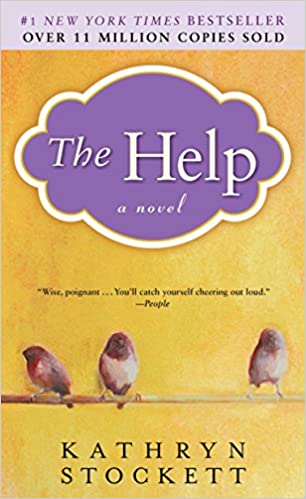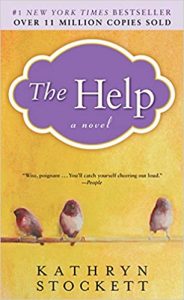The Help, book review


 Unless you’ve been living under a rock, you’ve heard about The Help by Kathryn Stockett. Maybe you’ve read it. Me, I’m on the tail end of the wave. When The Help first hit the scene, I checked it out from the local libe, read just enough to know it was a keeper, and turned it back in to await its arrival in paperback. Then I bought it and tucked it on my shelf to save for a start-of-summer treat.
Unless you’ve been living under a rock, you’ve heard about The Help by Kathryn Stockett. Maybe you’ve read it. Me, I’m on the tail end of the wave. When The Help first hit the scene, I checked it out from the local libe, read just enough to know it was a keeper, and turned it back in to await its arrival in paperback. Then I bought it and tucked it on my shelf to save for a start-of-summer treat.
Talk about worth the wait.
Set in Jackson, Mississippi in the early ‘60s, The Help follows the lives of three Southern women: Aibaleen, dignified and devoted, a nanny/cook/housekeeper who possesses a secret ability to write; Minny, feisty and opinionated, a cook bar-none who stoically endures her husband’s abuse; and Miss Skeeter, privileged yet awkward, the daughter of a genteel cotton farmer who longs for change. When Skeeter’s best friend conspires to build Aibaleen her own segregated toilet—part of her “Home Help Sanitation Initiative”—it’s the catalyst that propels Skeeter out of her ambivalence into action. What begins as a naïve hope eventually births a daring mission—to write a book written from the colored point of view, revealing the truth of what is means for black to serve white. The project catches the eye of a hard-boiled New York publisher. And the stories Skeeter unearths, in all their contradiction and complexity, usher in change—in ways no one could have imagined.
The Help is one of those books as compelling for its literary excellence as for its content. From a writerly perspective, it’s hard to fault this well-crafted novel. Its description is richly drawn, and each narrative voice distinctive, compelling, pitch-perfect. Plus, Stockett’s impeccable research results in a character-driven novel that’s as page-turning as a thriller.
But the real beauty of The Help is what it’s about: not race, ultimately, but humankind. The best line—which sums up the whole story—is when Skeeter sees that the book she’s writing is not merely about a colored person and a white person relating to each other. We are just two people, she realizes. Not that much separates us. Not nearly as much as I’d thought.
If you haven’t already done so, move The Help to the top of your list. Read it. Savor it. Allow yourself to be shocked… ashamed… moved. Consider afresh American race relations, with all its ongoing setbacks and successes. Though as a people we still have far to go, you’ll appreciate what’s been achieved and those whose sacrifice helped to achieve it. You’ll never take such gains for granted again.
